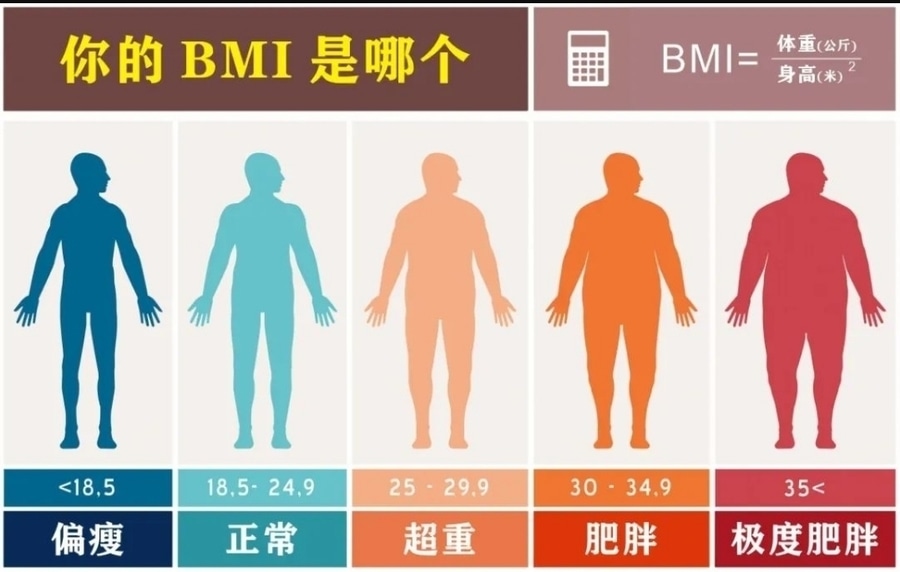
#Industry News
Surgery for weight loss can significantly reduce the risk of cancer and death
shenyun medical
According to statistics from the World Health Organization (WHO), nearly 2 billion people in the world are overweight or obese. From 1975 to 2016, the global obesity rate has nearly tripled, and the number of deaths caused by overweight or obesity is as high as 2.8 million each year.
In fact, obesity not only causes inconvenience in life and reduced exercise ability, but also increases the risk of metabolic diseases such as diabetes and cardiovascular and cerebrovascular diseases. According to data from the Centers for Disease Control and Prevention (CDC), obesity increases the risk of 13 types of cancer, including breast cancer, liver cancer, colorectal cancer, pancreatic cancer, and thyroid cancer, and is also associated with an increased risk of death from multiple cancers.
Bariatric surgery is currently the most effective way to lose weight, with an average weight loss of 20%-40%, and the weight loss effect can last for many years. So, can bariatric surgery reduce the risk of cancer and death in obese people?
On June 3, 2022, a research team from the Cleveland Clinic published a research paper titled: Association of Bariatric Surgery With Cancer Risk and Mortality in Adults With Obesity in the Journal of the American Medical Association (JAMA), a top international medical journal.
The study showed that for obese adults, weight loss through bariatric surgery was associated with a 32% reduction in the risk of obesity-related cancers and a 48% reduction in the risk of cancer-related mortality.
Dr. Ali Aminian, director of the Bariatric and Metabolic Research Institute at the Cleveland Clinic, who led the study, said that bariatric surgery is currently the most effective treatment for obesity. Obese patients can lose 20%-40% of their weight after surgery, and the effect can often last for more than ten years. And this study shows that the more weight you lose through surgery, the lower your risk of cancer.
The study conducted a long-term follow-up study on 30,318 obese patients at the Cleveland Clinic, of which 5,053 obese adults underwent bariatric surgery between 2004 and 2017. At a ratio of 1:5, 25,265 obese adults did not undergo bariatric surgery and were used as controls. The median age of these 30,318 obese patients was 46 years old, the median body mass index (BMI) was 45, 77% of them were women, and 73% were white. The main focus of the study was whether these participants developed any of the 13 obesity-related cancers, and the secondary endpoints were the prevalence and mortality of related cancers.
The 13 obesity-related cancers are: esophageal adenocarcinoma, renal cell carcinoma, breast cancer in postmenopausal women or young patients who underwent bilateral oophorectomy, cardia cancer, colon cancer, rectal cancer, liver cancer, gallbladder cancer, pancreatic cancer, ovarian cancer, uterine cancer, thyroid cancer, and multiple myeloma.
Ten years later, the weight loss group had lost an average of 24.8 kg, or 19.2%, compared to before surgery, while the weight of those who did not undergo surgery remained stable.
2.9% of those who underwent surgery developed cancer, while 4.9% of those who did not undergo surgery developed cancer. After adjusting for the risk ratio, those who underwent surgery had a 32% lower risk of cancer than those who did not undergo surgery.
This shows that among obese adults, bariatric surgery is associated with a significantly lower incidence of cancer and cancer-related mortality compared with non-surgical weight loss.
The study also further analyzed the proportion of any cancer in 200 patients who underwent surgical weight loss and 1,331 patients who did not undergo surgical weight loss. The results showed that the proportion of patients who underwent surgical weight loss developing any cancer after 10 years was 6.8%, while that of those who did not undergo surgical weight loss was 8.3%. After adjusting the risk ratio, the risk of any cancer in patients who underwent surgical weight loss was 17% lower than that in those who did not undergo surgical weight loss.
The researchers noted that the benefits of bariatric surgery were seen in a wide range of study participants, including women and men, young and old, and black and white patients. In addition, two bariatric surgeries, gastric bypass and sleeve gastrectomy, had similar benefits.
A large number of studies have shown that weight loss or bariatric surgery is beneficial to the health of obese patients. Previous studies from the Cleveland Clinic have shown that after bariatric surgery, weight loss can be maintained over time and type 2 diabetes can be effectively controlled. They also found that for patients with fatty liver, bariatric surgery can reduce the risk of liver disease progression and serious heart complications.
This latest study shows that bariatric surgery is associated with a significant reduction in the risk of future cancer and death in obese adults. This suggests that bariatric surgery is also a potential way to help prevent cancer and reduce cancer mortality. The research team said it will further explore the potential mechanisms for the reduced risk of cancer and death after bariatric surgery.
According to the American Cancer Society, obesity is the second most preventable cause of cancer in the United States after tobacco, and this study provides the best evidence on the value of deliberate weight loss in reducing cancer risk and mortality.
It is worth mentioning that many pharmaceutical companies have been committed to developing obesity treatment drugs that can match the effects of bariatric surgery, but the actual results are far from satisfactory.
Until recently, on April 28, 2022, Eli Lilly announced the results of a randomized controlled double-blind Phase 3 clinical trial of its weight loss drug Tirzepatide, which showed that after 72 weeks of treatment, the average weight loss of participants was up to 22.5% (24 kg). This is also the best effect of weight loss through medication so far, comparable to bariatric surgery, and exceeds the Phase 3 clinical weight loss effect of semaglutide developed by Novo Nordisk.
Eli Lilly said that Tirzepatide is the first research drug with an average weight loss effect of more than 20% in a Phase 3 clinical trial.





